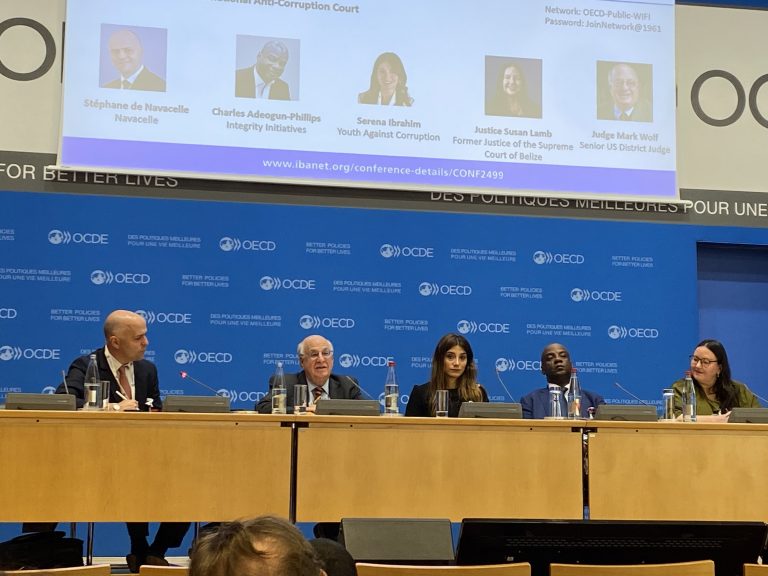On 29 September 2022, the US Treasury Department announced the publication of a new Beneficial Ownership Information rule. Most companies and entities formed or registered to do business in the United States will be required to report information to the Financial Crimes Enforcement Network (“FinCEN”) on the beneficiary who owns or controls them.
The purpose of this rule is to strengthen national security by preventing natural and legal persons engaged in illegal activities from hiding behind shell companies and thus taking advantage of the financial system to launder money and hide illegal proceeds.[1] This initiative is similar to the system introduced in France by Order No 2020-115 of 12 February 2020 on “beneficial owners’ information”.
I. The rule on beneficial ownership information is considered necessary for greater transparency in the financial system
The purpose of collecting beneficial ownership information on business entities operating in the United States is primarily to prevent the corporate veil from being used for illicit purposes, including financial crimes. According to the Secretary of the U.S. Treasury Department, information on the beneficial owners of such entities would help “crack down on criminals, corrupt individuals, and other nefarious actors seeking to take advantage of the U.S. financial system for illicit purposes” [2], targeting many of the crimes that can be facilitated by the anonymity of beneficial owners, such as money laundering, concealment of illicit wealth and assets, transfer of money related to drug and human trafficking, as well as serious tax fraud adversely affecting U.S. citizens.
This FinCEN rule implements Section 6403 of the Corporate Transparency Act. This law was passed on January 1, 2021, following the Anti-Money Laundering Act of 2020, and the National Defense Authorization Act for Fiscal Year 2021.[3] Its objective was to prevent the exploitation of US companies for illegal purposes and to assist law enforcement in preventing misconduct involving these companies.
FinCEN also pointed out that recent geopolitical events have demonstrated the importance and necessity of such information, as sanctions imposed on Russia following the invasion of Ukraine have, in some cases, been circumvented through the use of US companies owned by Russian nationals.[4]
II. The rule on the identification of beneficial owners applies to a large number of companies and requires various disclosures
When publishing the rule, however, FinCEN clarified that reporting requirements for companies would be tailored to their size.[5]
The FinCEN rule applies to most entities (new and existing) operating in the US, whether domestic or foreign. These “reporting companies” include[6] :
- US corporations (all except 23 statutory exemptions)
- Limited liability companies
- Any entity created by filing a document with a Secretary of State or similar office under the law of a State or Indian tribe
- Any foreign entity registered to do business in a State or tribal jurisdiction by filing a document with a Secretary of State or similar office
Each reporting company must provide FinCEN with the beneficial owner information report, which includes several administrative elements to identify beneficial owners, including the names, dates of birth, addresses, ID numbers, etc. of the persons controlling the company or those responsible for its registration.
This rule will come into force on 1 January 2024. Reporting companies that were created before this will have one year to file their initial report, and those created subsequently will have 30 days to do so from the notification of creation. Any changes in ownership or correction of erroneous information will have to be made within 30 days.
In particular, the following shall be considered as beneficial owners: (i) persons who hold at least 25% of the company’s capital; (ii) persons who exercise substantial control and take important decisions; and (iii) persons responsible for the reporting company’s registration.
The US Treasury Department further clarified in a December 2022 memorandum that beneficial owner information may be disclosed to, among others: (i) federal, state or local government agencies; (ii) foreign prosecutorial or judicial authorities; (iii) financial institutions; (iv) some supervisory authorities; and (v) the US Treasury Department.[7]
III. The rule on beneficial ownership information is close to the French rule on the beneficial owners register
The United States is a founding member of the Financial Action Task Force (FATF), which already recommended in 2012 the issuance of standards on beneficial owner transparency, namely the “International Standards on Combating Money Laundering, Terrorist Financing and Proliferation“.[8]
Moreover, a very similar rule was introduced in France by the Sapin II law in 2016, which is now included into the Monetary and Financial Code[9], which requires French and foreign companies to declare beneficial owners to the Trade and Companies Register (RCS).
However, there are some differences between the two regimes, the main one being that the French beneficial owners register is freely accessible to the public online.[10]
In a judgment delivered on 22 November 2022, the Court of Justice of the European Union (CJEU) held that public access to information on beneficial owners constituted “a serious interference with fundamental rights to privacy and data protection” based on Articles 7 and 8 of the Charter of Fundamental Rights of the European Union.[11]
Despite this high-profile decision, the Minister for the Economy, Finance and Industrial and Digital Sovereignty decided to maintain public access to the data contained within the beneficial owners register while waiting to draw all the consequences from the CJEU’s decision, stressing that “the publicity and free access to the beneficial owners register has been guaranteed in the framework of the fifth European directive transposition regarding the fight against money laundering and terrorism financing“.[12]











